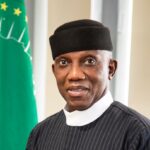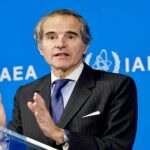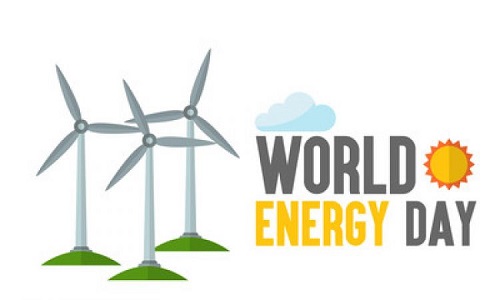By Lucy Ogalue
Stakeholders in the energy sector have reiterated the importance of ensuring an inclusive, energised Nigeria.
They spoke at the 2023 World Energy Day Celebration, organised by the Nigerian Association of Energy Economics on Thursday in Abuja.
The event sponsored by the Petroleum Training Development Fund (PTDF) has as its theme “Energising Nigeria’s Future: Bridging Energy Aspirations and Realities”.
The stakeholders who acknowledged the government’s efforts targeted towards energy transition, said a lot more still needed to be done.
While welcoming participants, Prof. Yinka Omorogbe, President, Nigeria Association of Energy Economics, reiterated the need for energised Nigerian youths.
According to her, the majority of Nigeria’s population is youth, and as such need to be included to help drive the nation’s economy.
Omorogbe said that an excellent energy mix was essential if we were talking about energising the whole of Nigeria.
She said that present-day realities must be dealt with for someone to aspire and succeed.
“And the present-day reality is that half of Nigeria does not have any electricity at all.
“We have a poor system when it comes to downstream products. We are a significant producer and a major downstream importer.
“If you now go into clean cooking, you will find that only about 20 per cent of Nigeria is utilising clean cooking fuel,” she said.
According to the President, what this means is that there is a significant deficit, but excitingly, if you are a business person, there are great opportunities for you.
She further said the government had a duty to create an enabling environment for the youth to thrive in all these areas, and that a lot can be done to make Nigeria a favourable investment place and push CNG and LPG.
“A lot is being done already, but a lot more needs to be done, especially once we realise that time is no longer on our side with all the different initiatives there are.
“Also, considering that we are a growing nation, the problem will only worsen if we do not work on our challenges.”
Omorogbe then acknowledged the Niger Delta Power Company, saying it is their donation that has sustained this conference over the years.
Also speaking, Ahmed Aminu, the Executive Secretary of the Petroleum Technology Development Fund (PTDF), said this year’s theme spoke directly to the call of our shared global challenges and opportunities.
“I am particularly enthusiastic about this conference’s role in shaping the future of energy and transportation.
“This event engenders a dynamic and inciteful dialogue among industry players, policymakers, and entrepreneurs.
“It is a collaborative platform to chart a new and sustainable course for business practices in the energy sector.
“This topic is timely considering the current economic and environmental challenges we face; it will also flash a torchlight on Compressed Natural Gas (CNG)as a sustainable alternative for our country,” Aminu said.
According to the executive secretary, CNG holds the potential to revolutionise not just the transportation sector but the way we think and utilise our energy resources.
He expressed PTDF’s commitment to driving the needed change through established human capacity and scholarship programmes for young Nigerians in renewable energy disciplines.
Presenting a keynote, Doosughun Takur, Director of Programmes, Clean Tech Hub Nigeria, also emphasised the need to move away from fossil fuels.
Taker, who expressed concerns on subsidy removal, said its removal was a way forward for the country to think towards a sustainable plan.
“We need plans to ensure we are not on resources that will run out, and then we will be stranded.
“We need plans, whether in government or in businesses, to create sustainability in our models and processes.
“I am a strong advocate of climate change. So, how will we keep the earth for those coming after us?
“We have to look beyond corruption, greed or money to make the world cleaner and greener for those coming after us, and the only way we can do that is through sustainability,” she said.
She said that Nigeria depended heavily on fossil fuels, and that transiting from there immediately to solar may be difficult due to the large gap.
She said: “since we have these natural resources (gas) that are not negatively affecting the environment as fossil fuels, I think our transition should move slowly from fossil fuel to gas, and then we can move to renewable energy. (NAN)(www.nannews.ng)
==================
Edited by Kevin Okunzuwa/Ese E. Eniola Williams












